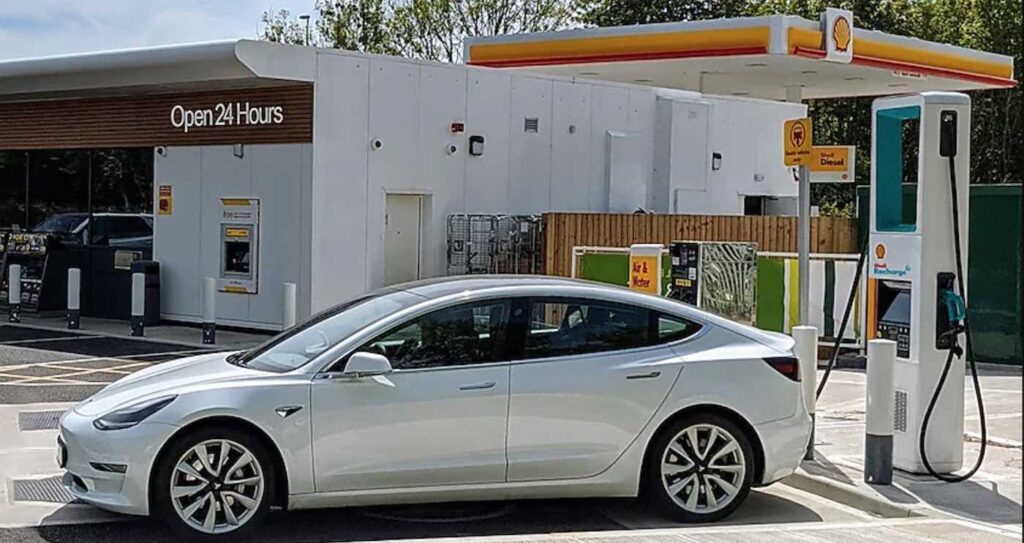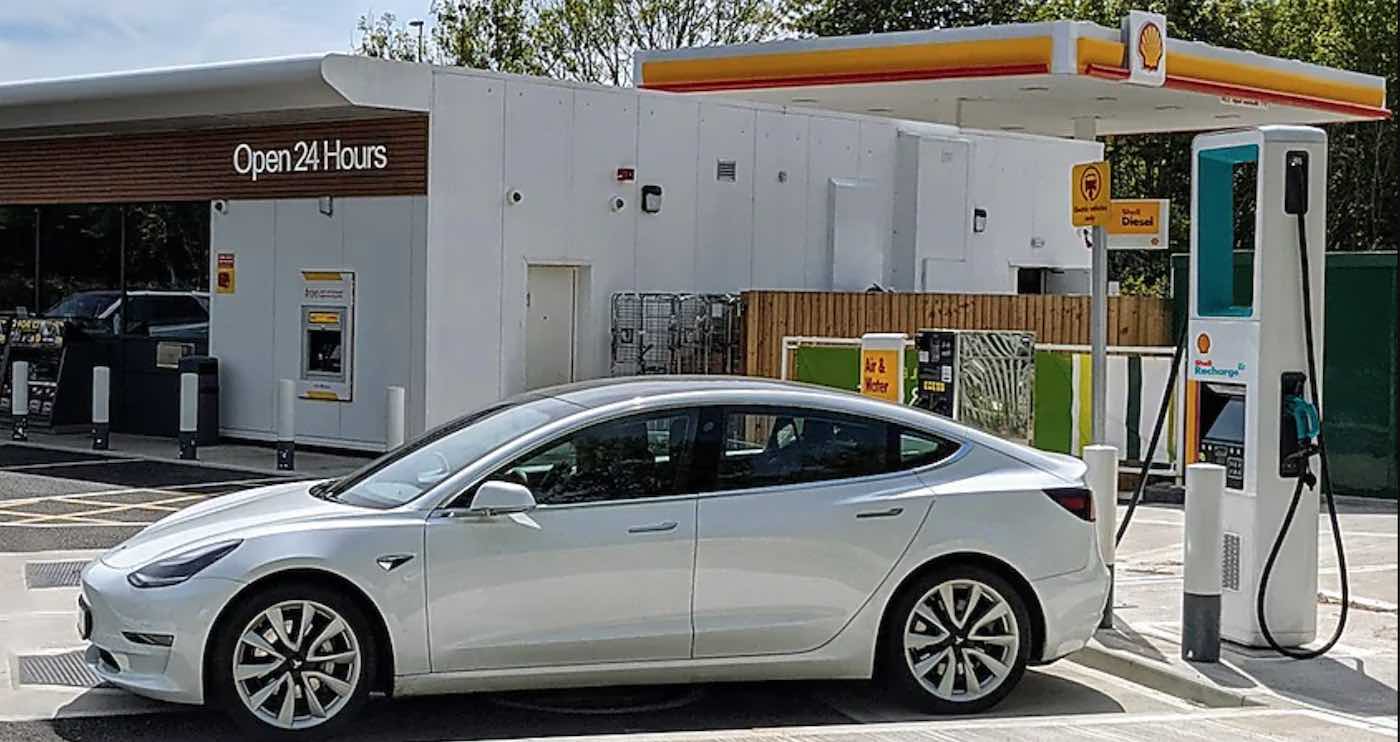While it may go against the business model of an oil company to promote a competing technology (like electric vehicles), many of the big players have all seen the writing on the wall as demand for electric vehicles (EVs) surges.

Shell, BP, Chevron and others are starting to embrace the notion of offering customers other options besides gasoline fill-ups in an attempt to keep access to wallets and loyalty, regardless of which type of drivetrain rolls in.
Royal Dutch Shell started to go big in EV charging in 2017 with the acquisition of NewMotion, Europe’s largest EV charging network with more than 30,000 nodes and a customer base topping 80,000 EV drivers.
Subsequently, Shell inked a partnership with Ionity, the EV charging technology/network created in partnership with BMW, Mercedes, Ford and Volkswagen to provide seamless EV-charging across Europe. Shell also rolled out its first few EV recharging nodes at existing refueling stations in the UK and Netherlands to test market demand, and a strong response has caused Shell to expand the program, calling it Recharge.
In 2019, Shell started implementing EV charging in the U.S. with the acquisition of Greenlots, a California-based provider of EV charging and energy management software and the installation of its first U.S.-based EV charging station at Logan Airport in Boston, Massachusetts.
RELATED: Tesla Becomes World’s First EV Company to Assemble 1 Million Cars
And just this past summer, Shell launched its RechargePlus program in California with plans to deploy EV charging infrastructure at commercial, retail, public and government locations as well as at multi-unit residential dwellings across the state. EV enthusiasts are optimistic that Shell continues to develop its EV charging infrastructure given the company’s huge retail reach of 25,000 filling stations globally.
Not one to be left behind, rival UK-based oil giant BP got serious about EV charging in 2018 with the acquisition of Chargemaster, the UK’s largest EV charging network, and major investments in U.S.-based FreeWire Technologies, which develops EV fast chargers, and Israeli EV-battery developer StoreDot. Within a year, BP opened the first BP-branded charging station in the UK, and the company plans to roll out dozens more in the next few years.
RELATED: UK Supermarket Chain Provides Free Car Charging Network to EV Owners While They Shop
U.S.-based Chevron is also getting in on things. Last year Chevron installed EV charging nodes at five of its retail gas stations in California in partnership with EVgo, an EV charging network already spanning 34 U.S. states. As demand for EVs surge, expect Chevron to incorporate EVgo charging systems in many more of its stations in and around major metropolitan areas where people tend to have electric cars.
For its part, ExxonMobil, America’s largest oil company, doesn’t seem particularly interested in EVs or EV charging. This past Fall its CEO Darren Woods was quoted as saying he “doesn’t get the point” about EVs when they “end up being charged by power generated from coal.”
MORE: New Lithium Ion Battery Design Allows Electric Vehicles to Be Charged in Just 10 Minutes
The point is that EV drivers can always look to Shell, which says its EV pumps are powered from 100% renewable energy.
EarthTalk® is produced by Roddy Scheer & Doug Moss for the 501(c)3 nonprofit EarthTalk. To donate, visit their website – or send questions to: question@earthtalk.org.





















I’m a IT guy. I attended a training conference about 5 years ago where I met a IT manager for a regional gas station chain. During our chat he told me the fuel they sell (gasoline, diesel, kerosene) covered ALL of their overhead costs and a very small profit. The gold mine according to him was the station convenience store. “It’s all profit” he told me. I wonder now if that’s still the case. If it is, it makes more sense to have a captive audience for longer. Somebody pumping gas is going to be in your convenience store looking for a drink or snack or smokes maybe 5-10 minutes tops. Someone using a charging station is still going to do that, but they also have the time to leisurely peruse the store. They could spend 20-30 minutes looking at what’s on the store’s shelves. There is a much higher likelihood of buying more to eat or drink because of the time on station and greater chance for impulse purchases. So, it actually makes sense to me (and hopefully oil companies) to have as many EV charging stations as you can squeeze on the lot.
As for Mr. Woods of Exxon-Mobile, I find it hard to believe anyone in his position could be so ignorant of technology and potential competition. Just like most homes and businesses in the US today the vast majority of EVs are charged with electricity produced mostly from natural gas THEN coal or renewables (depending on location) and finally nuclear. Natural gas is half the CO2 per BTU of coal, without all the nasty by-products. Additionally natural gas isn’t just cleaner, it’s cheaper. In a growing number of places renewable energy sources like wind, solar and hydro are also replacing coal. Coal is dying or dead. The US electrical grid is getting cleaner all the time, even if not necessarily smarter.
My guess is Exxon-Mobile will join their competition when they realize strategically placed EV charging infrastructure is good for their competition’s bottom line.